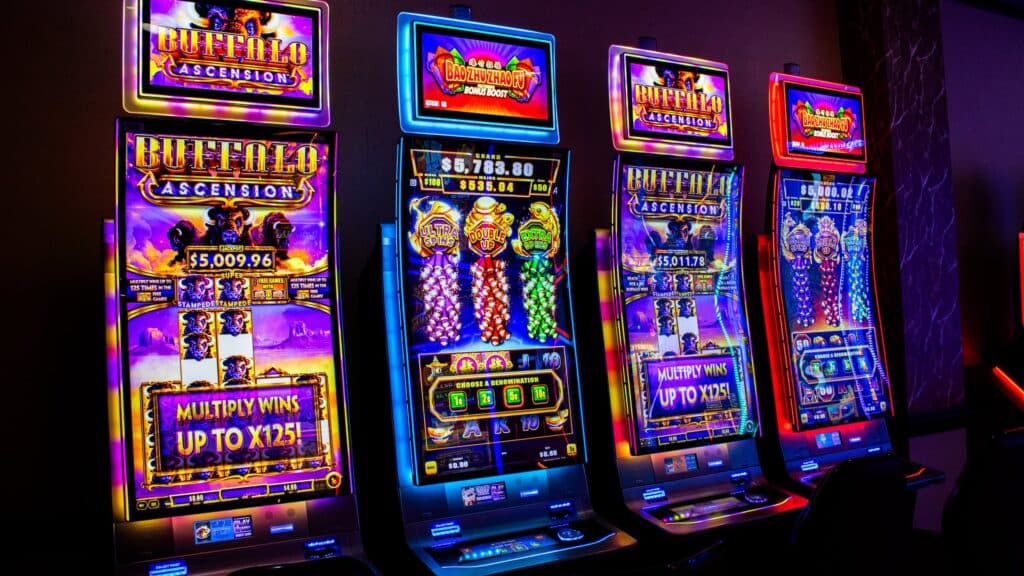Slot machines are one of the most iconic and widely recognized forms of gambling in the world. Whether in land-based casinos or online gaming platforms, slots continue to captivate players with their excitement, ease of play, and potential for huge jackpots. In this article, we will delve into the history of slot machines, explain their rules in detail, explore different types of slots, and share fascinating facts that will enhance your understanding of this thrilling game. Whether you are a beginner or a seasoned player, there's something for everyone in the world of slots.
The History of Slots
The story of slot machines dates back to the late 19th century, and their evolution has been nothing short of fascinating. The journey of slots from simple mechanical devices to the digital slots we know today is a tale of innovation, chance, and excitement.
Origins of the Slot Machine
The first-ever slot machine, called the "Liberty Bell," was created in 1895 by Charles Fey, a mechanic from San Francisco. This machine featured three reels, each adorned with five symbols: horseshoes, diamonds, spades, hearts, and a cracked Liberty Bell. Players would pull a lever to spin the reels, and if they lined up with matching symbols, the player would win a payout. The Liberty Bell was revolutionary for its time and set the standard for the slot machines that would follow.
Fun Fact: The Liberty Bell slot machine paid out 50 cents for a winning combination of three Liberty Bell symbols. This may seem small by today’s standards, but back then, it was considered a significant payout!
Rise of the Slot Machine Industry
Slot machines quickly gained popularity in the early 20th century, and their use spread across the United States, particularly in bars and restaurants. However, it wasn't until the 1930s that slot machines became a major fixture in casinos, as they became legalized in Nevada in 1931. The introduction of automatic payout mechanisms, which eliminated the need for attendants to manually pay out winnings, also contributed to the popularity of these machines.
The Digital Revolution of Slots
In the 1970s, the advent of electronic technology transformed slot machines. Companies began to incorporate electronic components, allowing for more complex gameplay, bigger jackpots, and features like video screens. By the 1990s, the rise of online casinos introduced the world to digital slots, which have only continued to evolve, offering players interactive experiences, exciting bonus rounds, and themed games.
Understanding How Slot Machines Work
Slot machines have become more advanced over the years, but the basic mechanics of how they work remain relatively simple. Let’s take a deeper look at the rules and how modern slot machines operate.
The Basics of Slot Machine Gameplay
- Reels: A typical slot machine has three to five reels that spin when the player pulls the lever or presses the "spin" button. Each reel has a set of symbols that can appear when the reels stop spinning.
- Paylines: Paylines are the lines across the reels that determine where symbols need to land in order to create a winning combination. Traditional slots have a single payline, while modern video slots can have up to 100 paylines, increasing the chances of a winning combination.
- Symbols: Slot machines feature various symbols, such as fruits, bars, numbers, or themed images. Special symbols like wilds and scatters can trigger bonuses or free spins.
- Betting: Players must place a bet to play the game. Bets can vary based on the denomination and the number of paylines the player selects. The higher the bet, the higher the potential payout, but also the risk.
- Winning Combinations: When the reels stop spinning, the symbols on the payline determine whether the player has won. Matching symbols in a winning combination yield a payout based on the payout table displayed on the machine.
The Role of Random Number Generators (RNGs)
Modern slot machines use a technology called Random Number Generators (RNGs) to ensure that every spin is completely random and independent of previous spins. RNGs are algorithms that generate thousands of random numbers every second, which dictate the outcome of the reels when the player presses the spin button.
This randomness ensures fairness in the game, as it eliminates the possibility of predicting the outcome of a spin or “rigging” the machine. Each spin is unique, and the RNG ensures that the results are unpredictable, offering players an equal chance to win.
Types of Slot Machines
There are many different types of slot machines available, each offering a unique gaming experience. Below are some of the most popular types of slots that players encounter in both online and land-based casinos.
1. Classic Slots
Classic slots, also known as "fruit machines" in some regions, are traditional slots that feature three reels and a limited number of paylines. These machines often have simple symbols like fruits, sevens, and bars, and they focus on straightforward gameplay without complex bonus features.
- Reels: 3 reels.
- Paylines: Usually 1 to 5 paylines.
- Gameplay: Simple, with fewer bonus features compared to modern slots.
Fun Fact: The classic "cherry" symbol, which is commonly seen in traditional slots, is said to have originated from the first fruit machines in the 1900s. It was used because cherries were a popular fruit, and their appearance in the game helped attract players.
2. Video Slots
Video slots are the most common type of slot machine today, offering more advanced graphics, animations, and features compared to classic slots. They can have up to five reels and dozens of paylines, and they often include bonus rounds, free spins, and interactive elements.
- Reels: 5 or more reels.
- Paylines: Often ranging from 10 to 100+ paylines.
- Gameplay: Features include bonus rounds, multipliers, free spins, wilds, and scatters.
3. Progressive Jackpot Slots
Progressive jackpot slots are a special category of slots that offer players the chance to win enormous jackpots that increase over time. A small percentage of each player's bet is added to the jackpot pool, which continues to grow until someone wins. These jackpots can often reach millions of dollars, making them highly attractive to players.
- Reels: 5 reels or more.
- Paylines: Typically between 25 to 50 paylines, though this can vary.
- Gameplay: To win the jackpot, players typically need to land specific combinations or symbols, often on the highest bet possible.
4. 3D Slots
3D slots are a more immersive version of video slots, with advanced graphics that simulate a three-dimensional world. These slots often feature cinematic animations and elaborate storylines that enhance the player's experience.
- Reels: Usually 5 reels.
- Paylines: 20 to 50 paylines.
- Gameplay: Engaging animations, free spins, and story-driven bonus rounds.
Fun Facts About Slot Machines
Now that we’ve explored the history, rules, and types of slot machines, here are some fascinating facts about slots that you may not know!
- Slot Machines Generate Huge Revenue: In Las Vegas alone, slot machines generate billions of dollars in revenue each year. In fact, they account for more than 70% of a casino’s total earnings.
- The Longest Slot Machine Spin: The longest-ever slot machine spin lasted for over 16 hours! This occurred in 2003 when a player kept the reels spinning for a marathon session at a Las Vegas casino.
- The First Online Slot Game: The first-ever online slot machine was introduced in 1994 by Microgaming, a software provider known for developing some of the best online casino games today.
- Return to Player (RTP): Most slot machines have a "Return to Player" (RTP) percentage that indicates how much of the total amount wagered will be returned to players over time. For example, a 96% RTP means that for every $100 wagered, the machine will, on average, pay out $96 in winnings. However, this is a long-term average, and individual results can vary significantly.
Conclusion
Slot machines have come a long way since the days of the Liberty Bell, evolving into some of the most exciting and lucrative games in the world of gambling. Whether you enjoy the simplicity of classic slots, the excitement of video slots, or the allure of progressive jackpots, there is a slot machine for every type of player. Understanding the history, rules, and types of slots can help you make more informed decisions and enhance your gaming experience.
So next time you walk into a casino or play online, take a moment to appreciate the rich history of slots and the thrilling possibilities they offer. Good luck, and may the reels always land in your favor!



